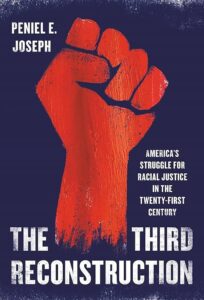Black Power movement scholar to be honored at 17th Annual National Black Writers Conference

By David Gil de Rubio | dgilderubio@mec.cuny.edu
When Dr. Peniel Joseph appears at the 17th Annual National Black Writers Conference that runs through March 23 at Medgar Evers College (he’ll be honored here), it will be a sort of homecoming for the acclaimed author and scholar who is considered by many to be the dean of the history behind the Black Power movement, a precursor to Black Lives Matter.
Joseph’s history with Medgar Evers College dates back to nearly two decades ago, around the time his 2006 book Waiting ‘Til the Midnight Hour: A Narrative History of Black Power in America was published.
It’s an experience he hopes aspiring writers take advantage of given the networking opportunities it afforded him to spread the word about his passion for Black Power history.
 “I think it’s a great annual representation and investment in Black writers generationally and across genres including fiction, poetry and non-fiction,” Joseph said. “It’s a great way to meet new friends, comrades and even people that are interested in getting (into) publishing.
“I think it’s a great annual representation and investment in Black writers generationally and across genres including fiction, poetry and non-fiction,” Joseph said. “It’s a great way to meet new friends, comrades and even people that are interested in getting (into) publishing.
“There are agents and editors there along with other people connected to that side of the industry. I think it’s a great investment in Black writers and artists in that way that no one else is really doing.”
A Holy Cross High School alum, Joseph grew up in Hollis, Queens, raised by his Haitian-born mother, who stoked an interest in African, Haitian, Caribbean and African-American history.
Social justice framed many of these unofficial lessons and came to life whenever his mother, a member of 1199 SEIU United Healthcare Workers East, took her son to his share of union demonstrations and picket lines.
A combination of books (The Autobiography of Malcolm X), documentaries (Eyes On the Prize), film (Do the Right Thing) and local hip-hop heroes (“The biggest rap group of all time in my mind is Run-DMC.”) fueled Joseph’s interest in Black radicalism.
“When I first started graduate school, people didn’t want to talk about Black Power,” Joseph recalled. “I knew just from being in New York, it was a big deal and it was something that went beyond just the usual suspects.
“I really dug in to really research that, but also bring a lot of people into it in a collaborative way to talk about men, women, the role of religion, the State Department, the Black arts, the poets, the spoken word. Luis Rivera was one of my professors — so was Amiri Baraka. The evolution is really trying to cultivate and bring a group of younger scholars together to do all this”
While the Black Power Movement may seem like ancient history to many younger people, it planted the seeds for more recent social actions like Black Lives Matter. Joseph’s passion for Black Power studies led to his founding the Center for the Study of Race and Democracy (CSRD) at Tufts University and a second center at the University of Texas campus in 2016, where he currently serves as a director. It’s this kind of work that keeps the conversation about social justice front and center.
“We are a convener of bringing different scholars, conferences and events together that are talking about the intersection between race and democracy, the politics of inequality and trying to change and transform that,” Joseph said. “We’re also about producing scholarship and being a research hub for people that are interested in that convergence.
“The idea of race and what people call democracy in the United States is makes it obvious that there has never been this perfect democracy. But trying to have aspirational democracy is really important. And to even see the backlash against democracy [in the form of] fascism, neo-fascist authoritarianism and White Supremacy is something to behold.”
 Joseph’s literary efforts have yielded a number of seminal works including Stokely: A Life, The Third Reconstruction: Rethinking the Civil Rights-Black Power Era and The Sword and the Shield: The Revolutionary Lives of Malcolm X and Martin Luther King, Jr.
Joseph’s literary efforts have yielded a number of seminal works including Stokely: A Life, The Third Reconstruction: Rethinking the Civil Rights-Black Power Era and The Sword and the Shield: The Revolutionary Lives of Malcolm X and Martin Luther King, Jr.
This served as the inspiration for the Disney Channel series Genius: MLK/X, for which the author served as a consultant. If there is one point the 51-year-old scholar wants to get across to students who might be interested in going down the rabbit hole of the Black Power movement is that there are many entryways into it that can be taken.
“People are always going to have their own interests,” Joseph said. “Some people may want to see what women were doing during a particular period. Some people may want to do the religious or the worker piece. Some people want to do the intellectual/ideological piece. Seeing that has been beautiful.
“Some people want to do the Black arts — the writers, the dancers, the poets and the mural movements. I taught a course about the Black arts. We looked at the Black museums and then the Black people trying to take over the White museums like the MOMA and the Guggenheim back in the day in addition to building our own. It was really interesting and beautiful.”
Joseph’s biggest hope for students who might be attending the 17th Annual National Black Writers Conference is that it’s steeped in the spirit of a collaborative community.
“Medgar Evers College is a great, great writing community and I think the conference is a place of fellowship,” Joseph said. “What I hope people understand is that it’s not a competition with each other. The competition is really in yourself to get the most out of you and to find your own voice within. And within that paradigm and framework, you do what you need to do so you can potentially write every day, find your own voice and get out the art that is within you.
“The art within you is not within anybody else. That’s what makes it so unique and so special.”

